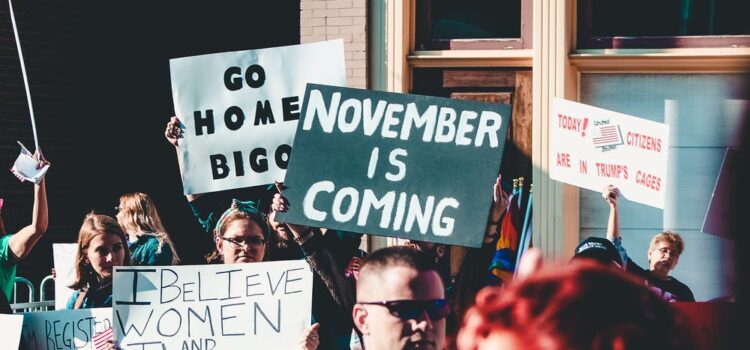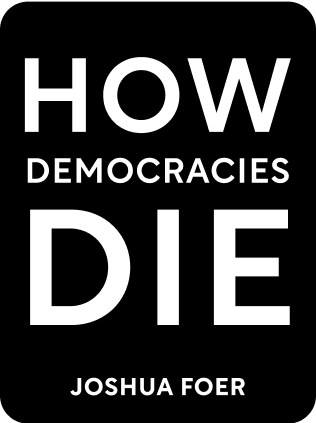

This article is an excerpt from the Shortform book guide to "How Democracies Die" by Steven Levitsky and Daniel Ziblatt. Shortform has the world's best summaries and analyses of books you should be reading.
Like this article? Sign up for a free trial here .
How did bipartisan politics damage the presidency of Barack Obama? Why is bipartisanship so damaging to democracy?
Bipartisan politics caused serious divisions between Democrats and Republicans. During Barack Obama’s Presidency, the GOP became increasingly anti-partisan and obstinate.
Read more about how bipartisan politics were harmful to democracy.
Bipartisan Politics and the Campaign Against Barack Obama
The political winds shifted again in 2008, when Democrat Barack Obama was elected to the presidency. As the first African-American president, Obama’s rise was a historic moment in the history of the nation. But once in office, he encountered a radicalized Republican Party that was openly committed to his political delegitimization and destruction from the first day of his administration.
During the 2008 campaign, right-wing media stars and prominent Republican politicians darkly hinted that Obama was a radical Marxist and secret Muslim. These charges were echoed most effectively by that year’s Republican vice-presidential nominee—Sarah Palin, Governor of Alaska. Palin whipped crowds of rank-and-file Republicans into a frenzy by baselessly accusing Obama of “palling around with terrorists.” Mutual toleration had crumbled to a shocking degree, with prominent Republicans encouraging their voters to view the opposition party as an alien, illegitimate entity.
Birtherism and the Tea Party
Obama won the election, but the viciousness of the campaign carried over into his presidency. Once in office, the GOP-led Tea Party movement formed to oppose Obama. Although the Tea Party often presented its concerns as having to do with fiscal policy, much of its energy came from birtherism—the belief that Obama was not born in the United States and was therefore ineligible to serve as president.
What was most alarming was that birther rhetoric was not just confined to the fringes of the party. Mainstream Republicans were publicly casting suspicion on Obama’s origins, including figures like former New York City Mayor Rudolph Giuliani, former presidential candidate Mike Huckabee, and, later, businessman and reality television star Donald Trump.
The Party of No
Driven by this image of Barack Obama as a thoroughly alien and illegitimate president, the GOP deployed extraordinary constitutional hardball tactics against him, withholding any cooperation with his administration, even on economic recovery legislation.
After the 2010 midterm elections brought Republicans back into the majority in the House, they had fresh opportunities to pursue their no-compromise agenda. They abused their congressional prerogatives to obstruct even the most routine legislation and slow the confirmation of federal judicial appointments, pushing forbearance to the brink.
While the GOP’s behavior was technically within the bounds of the law, they were using their control of Congress in ways that seriously undermined the constitutional system. There were two main crises of institutional forbearance that merit a closer look.
The Debt Ceiling and Government-by-Hostage
In 2011, Congress needed to raise the debt ceiling. The debt ceiling is the statutory limit on how much the federal government is allowed to borrow in order to meet existing financial obligations. When the Treasury Department informs the president that the government is approaching this limit, Congress is supposed to pass new legislation that raises this figure and allows the government to pay its creditors. To not raise the debt ceiling, therefore, is to force the United States to default on its debt.
But the new GOP House majority saw the debt limit as an opportunity to take the creditworthiness of the United States hostage, with the goal of extorting policy concessions from Obama in the form of drastic spending cuts to social programs favored by Democrats.
Many Republican leaders openly declared that they were willing to force a default and plunge financial markets into chaos in order to win a political victory over Obama. Although the Obama administration and the congressional Republicans worked out a last-minute deal to avert a debt ceiling breach, the ordeal set a grim precedent for the future.
A Stolen Supreme Court Seat
In February 2016, Republican-appointed Supreme Court Justice Antonin Scalia passed away, creating a vacancy on the Supreme Court. Within hours of Scalia’s death, however, prominent Republican leaders were declaring that Barack Obama should not be allowed to appoint a replacement for him in an election year.
Undaunted, Barack Obama nominated federal judge Merrick Garland to fill the seat. Garland was widely regarded as a highly qualified and ideologically moderate candidate. As we saw in our study of 20th-century American bipartisan politics in the last chapter, this once would have meant Garland’s likely confirmation by a large bipartisan majority.
But Garland’s qualifications mattered little to the Republican-led Senate in the new, hyper-polarized era of American bipartisan politics. Mitch McConnell, now Majority Leader, announced that the Senate would not consider Garland’s nomination, declaring that an outgoing president like Obama had no right to make a lifetime appointment to the Supreme Court.
This was a shocking breach of institutional forbearance. There had always been customary deference to a president’s nominees to the Court, provided that they were qualified. Now, Republicans were declaring that Obama lacked the right to even make a nomination. They held the seat vacant through 2016. When Donald Trump was elected president, Republicans quickly rushed Trump nominee Neil Gorsuch through the confirmation process and onto the Court.
This was, effectively, a theft of a seat on the highest court. It was a nakedly partisan event that was simply without precedent, a dangerous precedent all due to bipartisan politics.

———End of Preview———
Like what you just read? Read the rest of the world's best book summary and analysis of Steven Levitsky and Daniel Ziblatt's "How Democracies Die" at Shortform .
Here's what you'll find in our full How Democracies Die summary :
- How shared norms are essential for preserving democracy
- Why the Trump presidency threatened those shared norms
- Why democracy goes beyond individual leaders and parties and must be a shared enterprise among committed individuals






